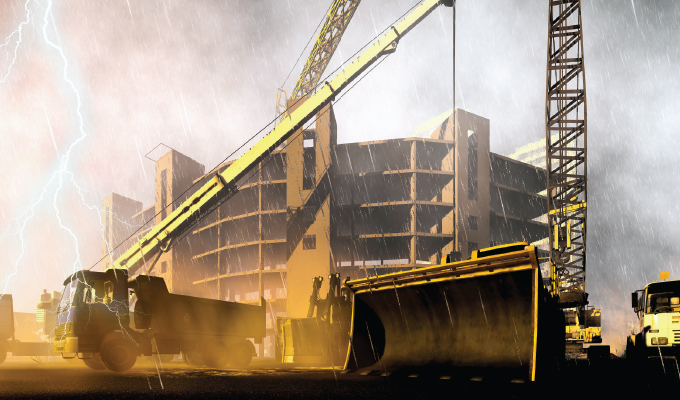By Jane Marsh
It’s important to be ready for anything as a contractor. If you encounter a sudden obstacle, as contractors did during the recent blackouts in Texas, you should have a plan in place so that you can return to work safely.
1. KEEP AN EYE ON WEATHER CONDITIONS
There should be an effort to watch weather conditions, too. If your location experiences seasonal weather changes, you likely already keep an eye on the climate. This knowledge will help you build an emergency plan that keeps your site prepared for potential power interruptions.
It’s sometimes impossible to have a strategy in place, especially when the weather can be unpredictable. Those scenarios require you to pick the best solution according to the moment, so your plan might not apply. However, you’ll still be much more prepared when you have a procedure for weather events that may affect power sources, like snowstorms and heatwaves.
2. DETERMINE CURRENT ENERGY NEEDS
Figure out how much energy you need for operations. This amount might differ, but you can use your site’s average usage as the baseline. List all electric-powered items you use most often. Include equipment like smartphones, tablets, and computers you require, too.
This information will help you know what your site requires energy-wise to continue work. Construction relies heavily on fossil fuels, so you could reconsider conventional power supplies altogether. Many studies point to how renewable energy might be more reliable than gas and coal, so you’d theoretically be able to lessen power outage risks.
3. USE A GENERATOR
This equipment will allow you to power your site when you don’t have electricity. Before you purchase a generator, you must know your power needs to select the best size. That’s when your research will be beneficial. It’s worthwhile to analyze potential plumbing concerns because you may need additional watts to ensure your water runs properly. Test the device periodically to confirm the device works. This way, you won’t encounter any other unexpected concerns.
4. SCHEDULE TIME FOR UNEXPECTED ISSUES
Areas that experience a city-wide power outage endure more issues than most realize. It’s bad enough not to have electricity or water, but you can experience specific concerns related to your work. Take transportation as an example. There could be a logistics issue with your materials, so you can’t proceed as planned until they arrive.
Try to leave additional time in your day’s schedule for emergencies. These events aren’t always power-related, either. If you rush operations, you could create other problems associated with work quality and worker injuries. Cushion your projects’ timelines to avoid issues.
5. CONSIDER BATTERY-OPERATED
It might seem nonsensical to pick battery-operated tools when the electricity doesn’t work. That said, you can’t always find a reliable fuel source during power outages. Plus, you need to ventilate indoor spaces when you operate said tools, and your HVAC system might not be an option.
Instead, consider equipment that uses rechargeable batteries. Keep the batteries charged to prevent issues—and have spares on hand. You should find various battery-operated devices for your needs.
CLOSING THOUGHT
Always be prepared for the unexpected; have a plan to execute.
About The Author
Jane is an environmental and green technology writer who covers topics in sustainable construction and green building materials. She also works as the editor-in-chief of environment.co.
Modern Contractor Solutions, May 2021
Did you enjoy this article?
Subscribe to the FREE Digital Edition of Modern Contractor Solutions magazine.



